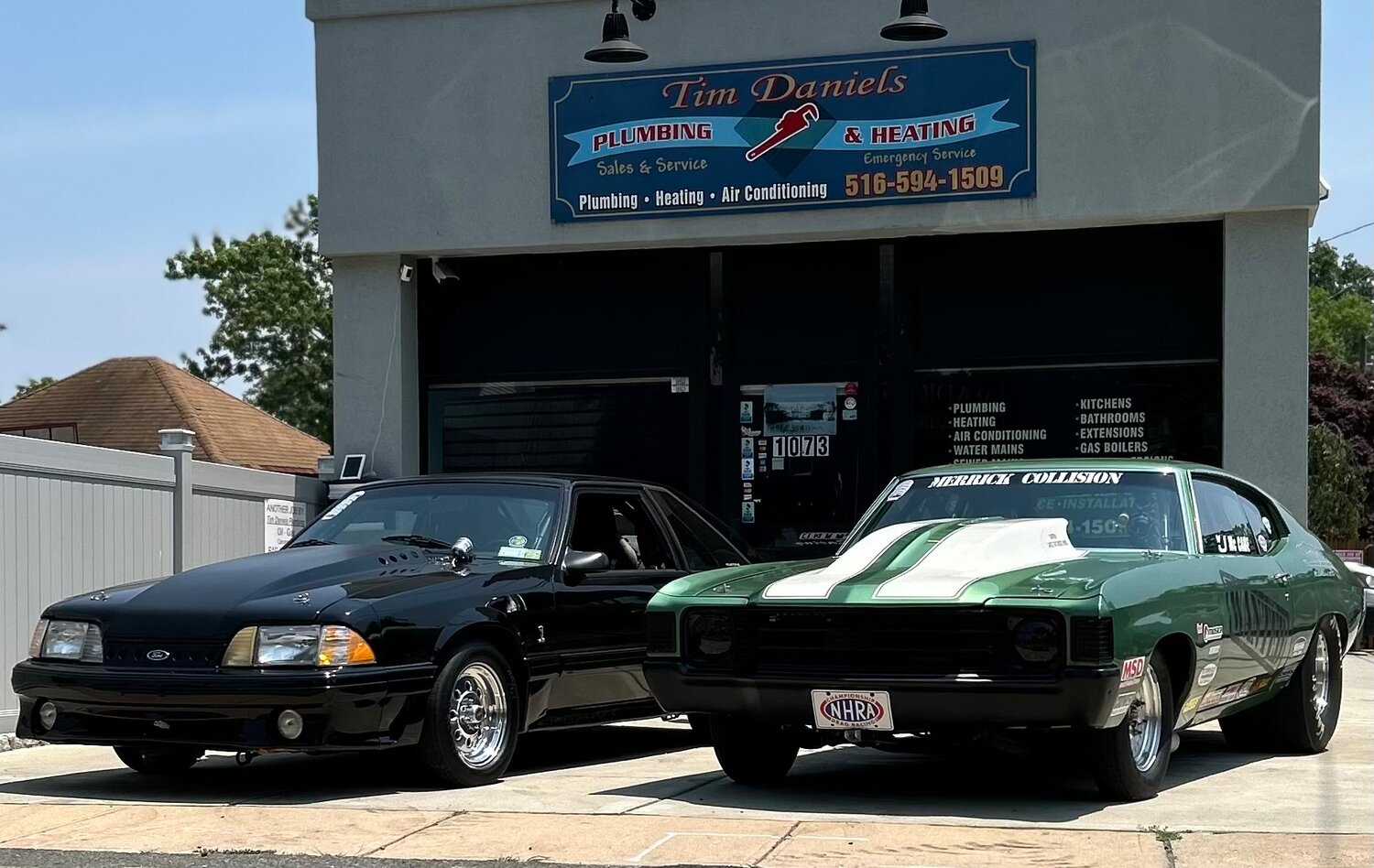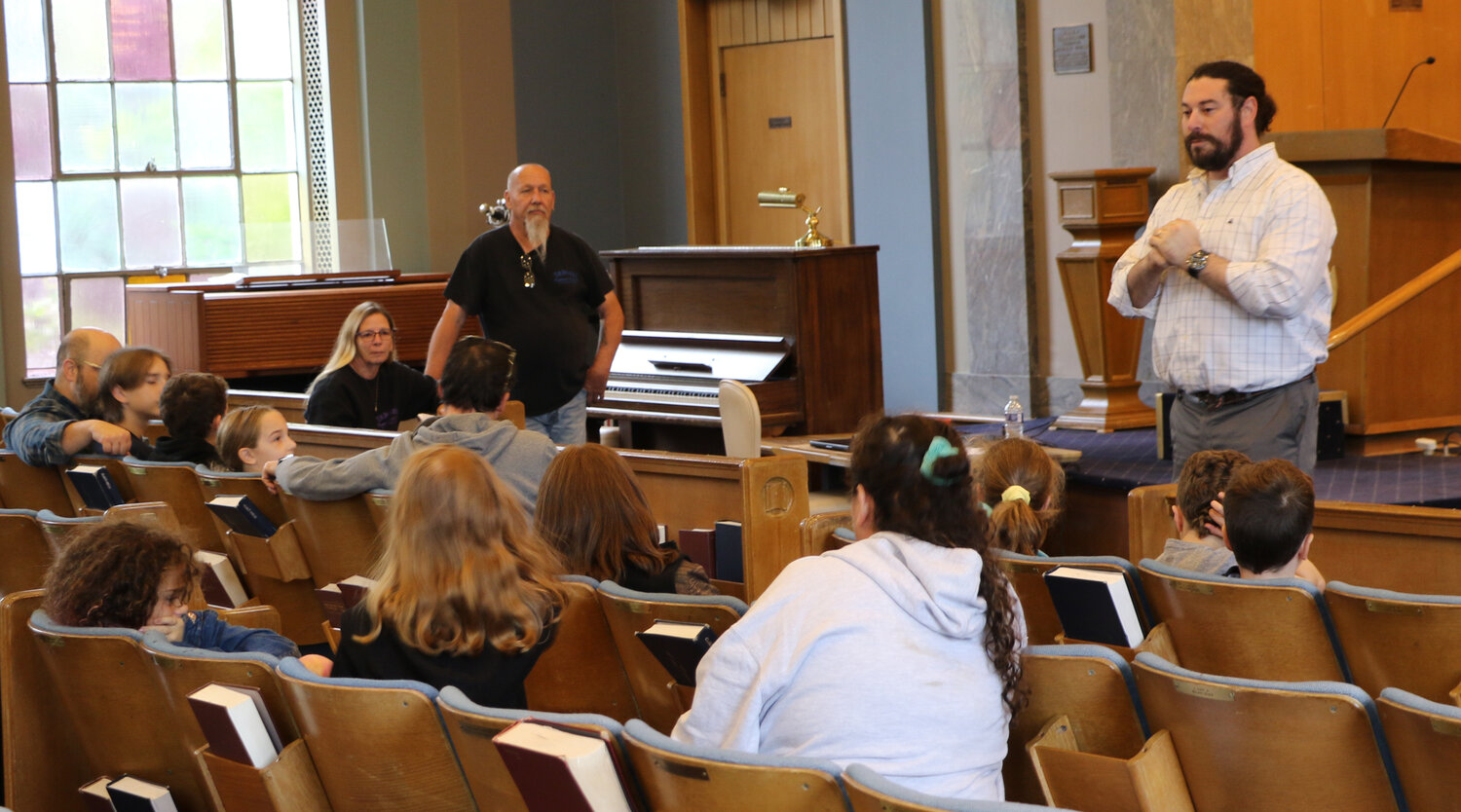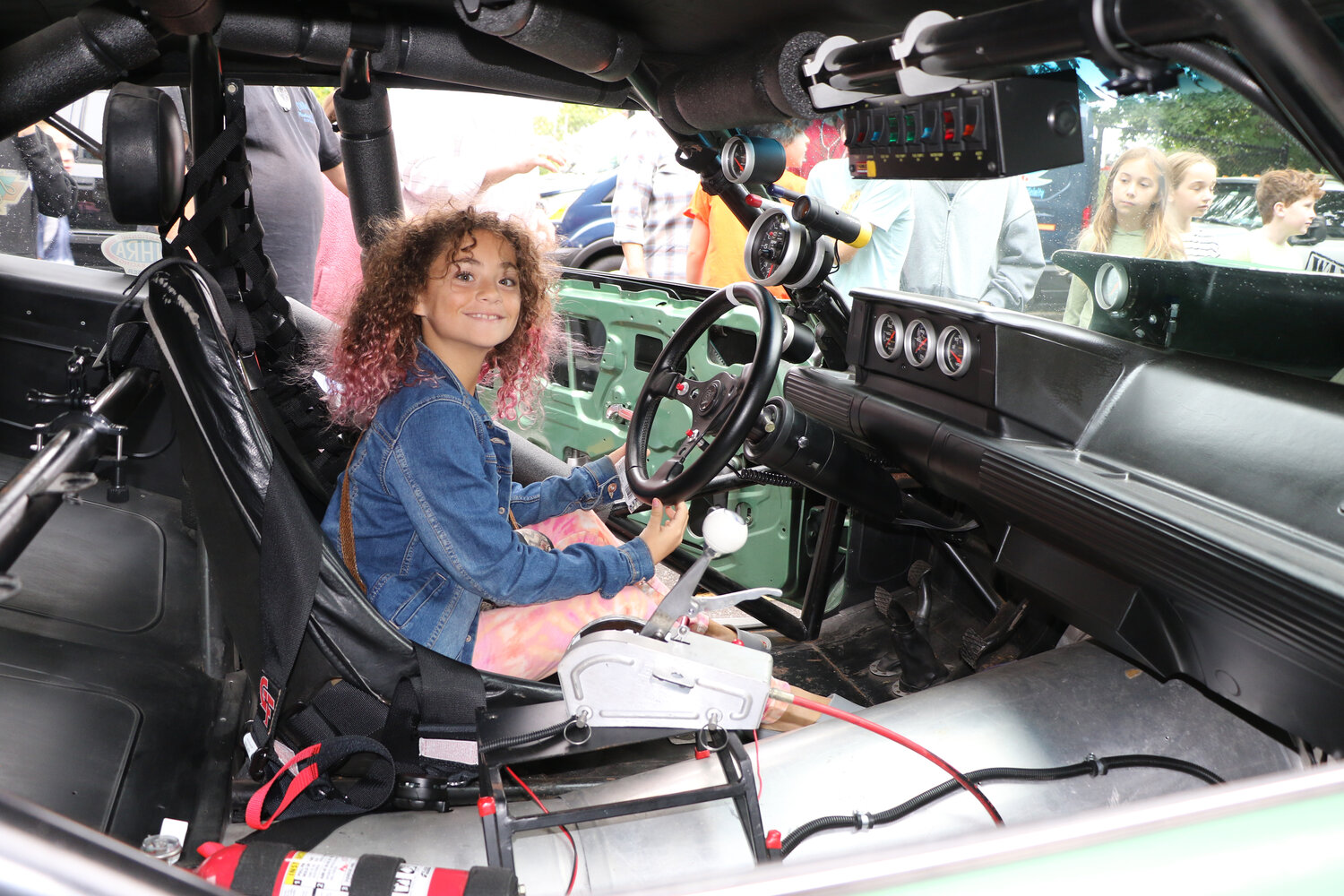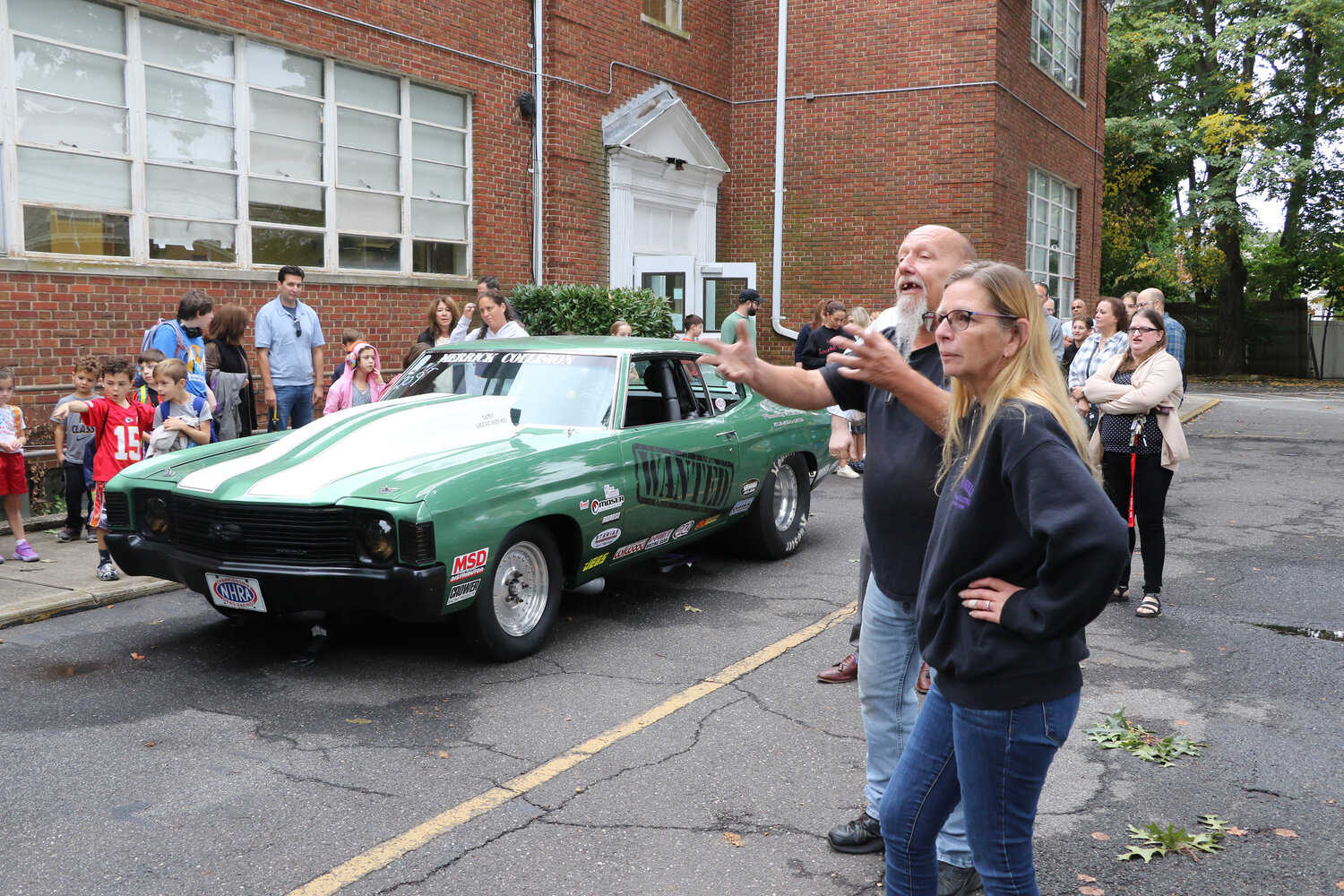Racecar drivers visit Central Synagogue-Beth Emeth Hebrew school
Long Island natives Warren McCabe and Donna Manchin of Wanted Racing have a passion for the high-speed thrill of drag racing.
The two semi-pro racecar drivers from South Hempstead visited with Hebrew school students at Central Synagogue-Beth Emeth in Rockville Centre on Sunday morning, to discuss how they got involved in the high-octane motorsport.
“A lot of people think its just going straight,” McCabe, 65, said. “You’re taking a car when it’s out of control and basically controlling it.”
McCabe started racing in 1977, when he was just a teenager. He said that as a youth, he was constantly getting into trouble and racing became an outlet for him.
“In a quarter-mile (race) you have no time to think about anything. Your mind is empty,” he said. “Most guys are a nervous wreck. Before you get to the light they put your rear tires in a burnout. It’s where you wet the tires to make them slick. Then you literally burn the rubber, which helps them grab the track because it’s so hot.”
Donna Manchin, who grew up in West Islip, said she started racing nine years ago, when Warren put her behind the wheel.
“He told me to let go of the break and hit the gas as hard as you can,” she explained. “I got hooked on racing.”
Manchin said that 95 percent of the people at the racetrack are men, with very few women drivers in the sport.
“A lot of guys still don’t believe that a woman can drive,” she said. “I once beat a guy and his buddies were making fun of him for getting beat by a girl.”
Wanted Racing participates in both quarter-mile and eighth of a mile races at the “Race Track Not Street” drag strip at the Calverton Executive Airpark, which is an officially sanctioned drag strip with National Hot Rod Association.
Racing can be a quite expensive endeavor, as the motor alone costs in the ballpark of $40,000 and refueling can cost around $45 per gallon. Thanks to the support of their sponsor, Tim Daniels Plumbing and Heating, the Wanted Racing team are able to afford to maintain their vehicles so that they are in peak racing condition.
McCabe added that while he finds racing to be very rewarding, it could also be extremely dangerous. For this reason, he explains, track officials check to make sure the springs are correct on the carburetor and that crash helmets and seatbelts used are up to date, as they can expire. If they are past their expiration date, the car is not allowed to compete.
Trying to control a vehicle at such high speed can sometimes be unwieldy, which is why McCabe said it’s important to remember to take your foot off the pedal when the car starts to spin out to avoid flipping the car. He explained that more inexperienced drivers have a hard time remembering to do that.
In the event the car starts to flip over, he said, the goal is for the driver to stay put—otherwise they can get really hurt.
“If you’re just starting out, you have to work your way up. This didn’t happen overnight,” he said. “We put a lot of time and a lot of work into it.”
Illegal drag racing has been a major issue on Long Island for many years. The goal of “Race Track Not Street” is to encourage young drivers to participate in drag racing in an official supervised capacity instead of putting themselves and other drivers at risk by racing on busy roadways where the consequences can be lethal.















